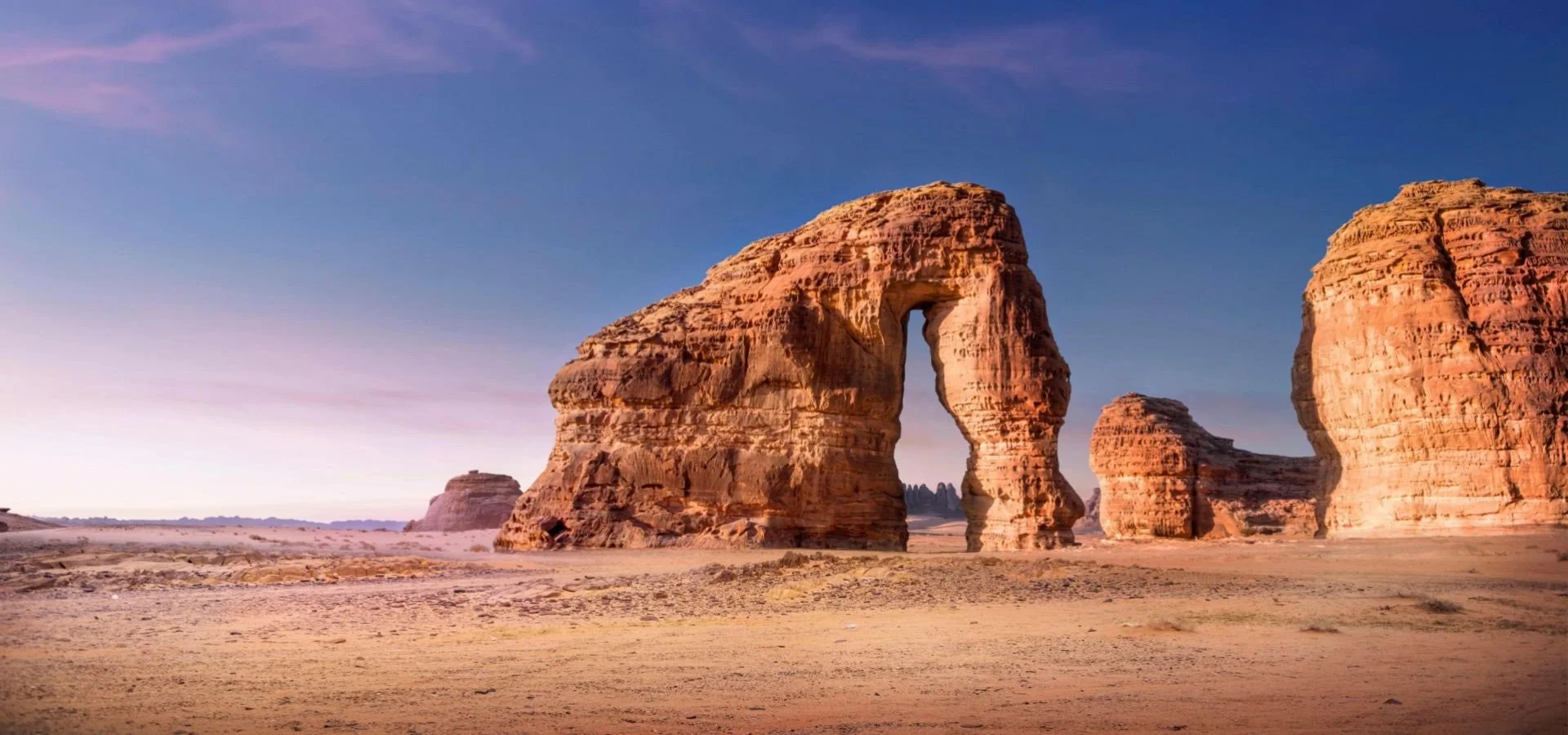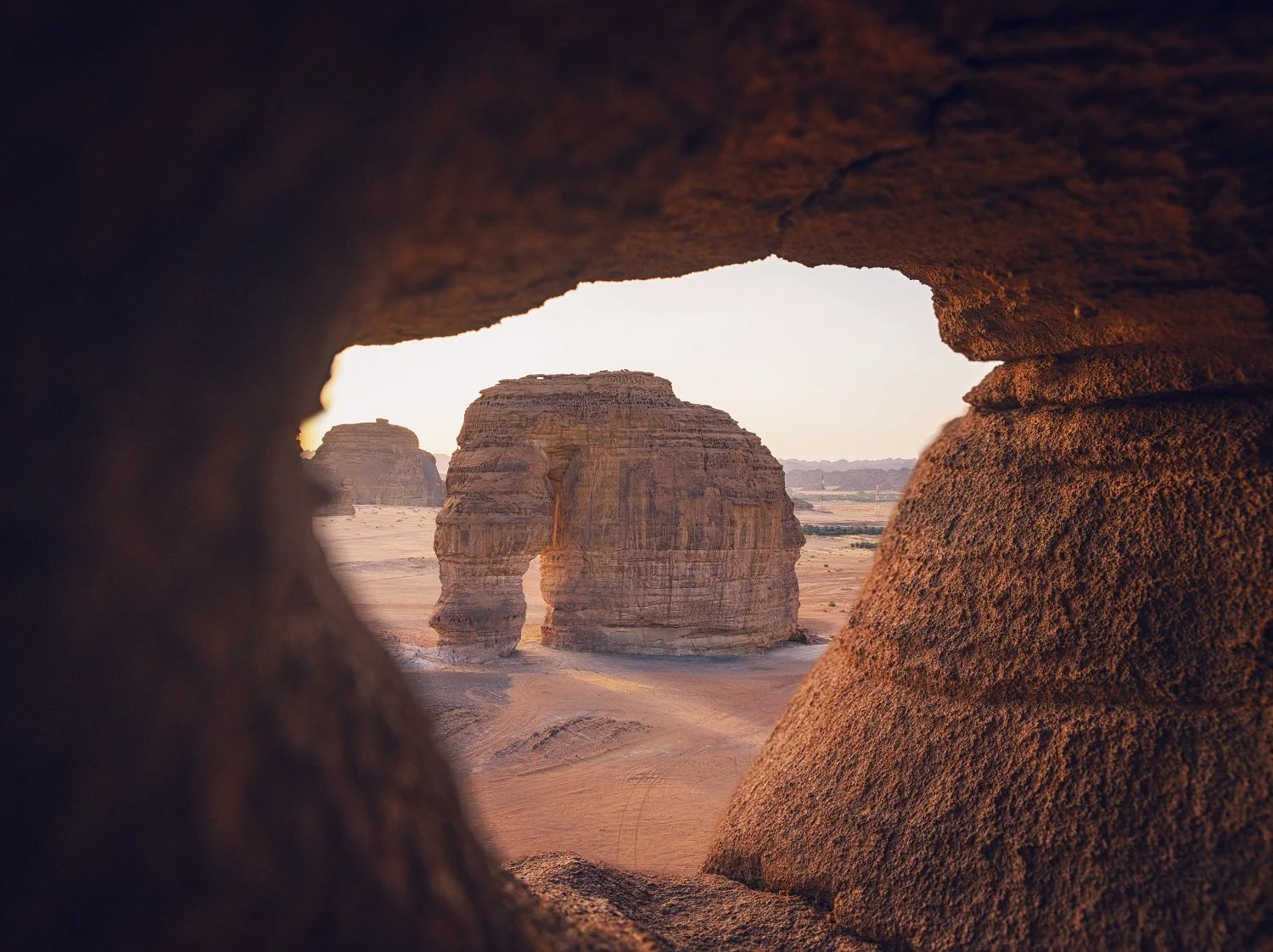Fest Track On Sirk TV Print Interview: Stephen Strachan Of Film AlUla [Red Sea International Film Festival 2021] - Part II
The beauty of Saudi Arabia reflects in the many different locations that it can help realize. With the Russo Brothers' film “Cherry” with Tom Holland for Apple Original Films shooting partially last year in the region last year and the film “Kandahar” starring Gerard Butler beginning production soon, the future of filming in Alula looks bright.
During a luncheon for the Film AlUla at the Red Sea International Film Festival in Jeddah, Saudi Arabia, Fest Track sat down for an interview with Film AlUla Commissioner Stephen Strachan to talk about geography, recent productions and the creation of infrastructure.
Here is Part II of that conversation.
I know the intention for a burgeoning Saudi film industry has been building because in 2018, I met with the Saudi Film Council in Cannes, when you guys first had the booth there in the International Pavilion. It was still being figured out...we were talking about education, to a point. But then it was also like, "We'd like to get the production in." But this was before the Red Sea Film Festival had come to be which obviously provides a funnel of film appreciation to the world and possible filmmakers.
It's been a massive success. I've been in the region for 11 years. Myself I started off in Doha in Qatar.
Were you part of the Doha Tribeca Film Festival? Because we came and covered that as well.
And look at the evolution of that. We had [Robert] De Niro. We had Tribeca. We had the glitz and the glamour. And then it went to [Doha Film Institute], which was very much education, training, supporting young filmmakers, specifically first to second-time filmmakers. And I think, in Saudi, we didn't start from zero. We had companies like Nebras [Films]. When I was a creative producer -- I was working out of Dubai. I'd already come over to Saudi a couple of times, did a project, met with Nebras, and met with a couple of other companies as well. You've had filming out here for quite a long time including a buoyant commercials industry. There are about five companies that have been here for over 15 years. They got their own equipment. They've got little studios. And you've already got people on the ground here who can maybe not do something as big as Kandahar, but can do film. And even when I arrived in Qatar in 2011, some of the best filmmakers that were making short films were coming out of Saudi.
It's so interesting. Because looking at it from an outsider's perspective, I mean, Saudi Arabia is a country that only opened their cinemas back up 5 years ago. And yet it now is starting to support what we're seeing as a rising film industry.
Sure. Completely understood. And His Highness [ Prince Badr Al Saud] and the Ministry Of Culture are very much behind the move to push culture forward. And [some] Saudis tell me that this is something that had an evolution a longer time with many who were sent abroad to study. So many Saudis that I worked with (or a lot of them) are bilingual, and speak fluent English. A lot of people have studied for four years, five years in America, or in England.
We do a lot of film locations element and coverage with Fest Track on Sirk TV. But we do a lot of interviews the educational basis. And what was interesting is, I did an interview with the filmmakers that made “Junoon” just two days ago. Their film is playing the Red Sea International Film Festival this year and will likely be playing more festivals. Their film is a found footage horror move.
And it speaks to exact what you are saying. They were born here. They went to school in Los Angeles. They're bilingual, but they're coming back to Saudi with their films. So it's this new young blood helping push the industry forward as well. But you also have the people that want the filmmaking from older generation. Can you talk about that balance?
75% of the population is under 35. That's a good number. So who are we talking about then? The Netflix generation, the Google generation, right? Generation Z. So everyone's connected to the internet. That's part of the change as well. A lot of this started back in 2008, 2009 withYouTube with a couple of places. In 2011, some locals started to do YouTube content. YouTube wasn't on television, and it wasn't cinema, of course, but it was unregulated, so [it was able to] push forward. And that gave a real insight into what was going on in Saudi. Some of these guys used to come up to Qatar, so we knew each other. And we're like, "Oh, why don't you do a television series?" And they were like, "No, no, no,. We want to do YouTube because we can actually broadcast what we want to and say what we want to with them. They did what they wanted, and they really pushed things forward in terms of filmmaking. And then, just because I was in Qatar, with the Doha Institute, we got a lot of Saudi filmmakers who came over to do our courses. That's how we knew a lot of these guys and what they were up to.
It sounds like Qatar was your first placement in the Middle East. Can you talk about moving Saudi Arabia as a destination forward, both from a tourism and filming perspective?
It is really about the culture. It's about the people here as well as about creativity. You get in places like Jeddah...Jeddah and Riyadh being two really creative hotspots in Saudi Arabia. I think when you get into the creative industries, a lot of people-- the minute they talk to you on the ground, it's totally defies expectation.
The people here in Jeddah we have interacted with are just so thoughtful with everything. They really want people to come here and experience the country.
Jeddah is used to foreigners as it were. It's different people coming and going. And it is said AlUla has adapted really well to tourism. We have quite a lot of tourism [possibilities]. You've got Hegra, and our Nabataean tombs which is the same civilization that you have in Petra. It's the southern point of the Nabataean civilization.
But with these locations, you have to have the regulations around it to be able to protect it correct?
Hegra is a UNESCO Heritage site. I guess that's one of the reasons why the Royal Commission was set up: to protect and conserve it. This whole area is massive. And then we also have the Sisera Well, which is a shrine. I mean, Dedan, the Dedanite civilization, which is mentioned in the Bible, has royal tombs which are built into the hillside. [Unlike Mecca] this is a tourist site. So everyone's allowed. Everyone can visit.
But with these locations, can you only get there by driving or is there an airport there?
So you got a little airport -- the Prince Abdulaziz Airport-- and that has now been designated international. You can, of course, do domestic flights to and from Riyadh and Jeddah, but also, there are flights now to and from Dubai.
To learn more about Film AlUla, visit filming.experiencealula.com
By Tim Wassberg


